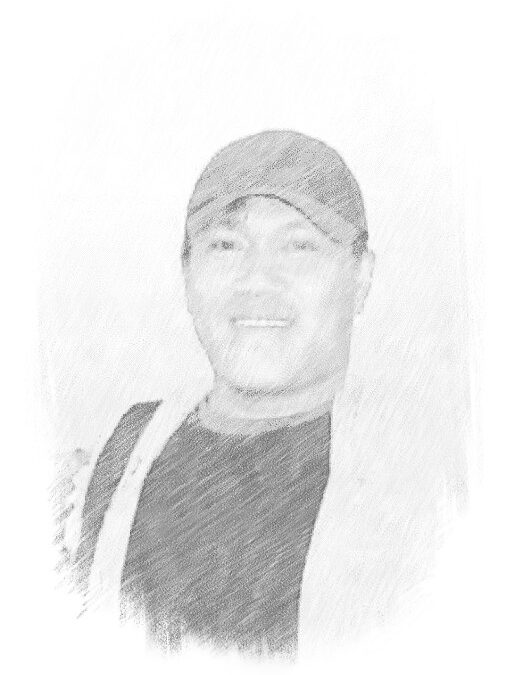
Oct 4, 2019 | Advocacy, News
Reform of the 1959 Defence Services Act is a necessary step to address ongoing military impunity. The case of Ko Par Gyi’s killing should be reopened to satisfy the State’s international law obligations and deter repetition of serious crimes by soldiers.
Five years after the death of journalist Ko Par Gyi, the ICJ calls on the Government of Myanmar to reform the 1959 Defence Services Act, which was used to shield soldiers from accountability for involvement in his killing.
“The case is emblematic of the 1959 Defence Services Act being used to enable impunity for human rights violations by soldiers throughout Myanmar, by transferring to military courts the authority to investigate and prosecute serious crimes against civilians,” said Frederick Rawski, Asia Pacific Region Director for the ICJ.
“Impunity for Ko Par Gyi’s death is another example of this law being used to shield soldiers from accountability for serious crimes,” added Rawski. “Legislators should reform the 1959 law to enable the public criminal prosecution of soldiers for serious crimes in all circumstances, and take other steps to address the accountability gap.”
After being detained by police in Mon State and transferred into military detention on 30 September 2014, Ko Par Gyi died four days later in the custody of Tatmadaw soldiers. Unceremoniously buried in a shallow grave, Ko Par Gyi’s death was hidden from his family and the public for weeks. Nobody has been held accountable for his death and his family lacks access to redress, including their right to know the truth.
A deeply flawed inquiry carried out secretly in military courts, pursuant to the 1959 Act, resulted in the acquittal of the soldiers allegedly involved. This effectively ended other efforts to hold the perpetrators accountable, including through an inquest at the Kyaikmaraw Township Court in Mon State. It also flouted the Myanmar National Human Rights Commission’s recommendation for a police investigation and public criminal trial to be undertaken by civilian authorities.
“Five years on, Myanmar authorities must finally initiate a thorough, independent and impartial investigation into the killing of journalist Ko Par Gyi,” said Sean Bain, legal adviser for the ICJ. “The truth must be established and recognized, and those responsible for his apparently unlawful killing need to be brought to justice in fair trials,” he added.
Several provisions of the 1959 Act are used to facilitate a transfer of cases involving military personnel from civilian to military courts, including for serious crimes against civilians. This has been used as a tool to avoid accountability in cases throughout Myanmar, such as its use to justify the early release of soldiers who were convicted by a military court in the killing of ten Rohingya civilians in Rakhine State in 2017.
International legal standards prohibit the use of military courts to try military personnel for gross human rights violations and crimes under international law. The detention and prosecution of journalists, based solely on their lawful activities undertaken while doing their job, violates the right to freedom of expression, and the rights to seek, receive and impart information and to participate in public affairs.
Myanmar authorities have an obligation to reopen the case of Ko Par Gyi with a view to establishing the circumstances of his death, as with any potentially unlawful killing by either State or non-State actors.
“By empowering civilian courts to oversee such cases, the NLD Government would send a powerful message to all justice sector institutions, including police, prosecutors and judges, that they can and should review potential crimes involving the military with independence and impartiality, in line with the rule of law,” added Bain.
The National League for Democracy (NLD)-led Government has the legislative authority to immediately reform the 1959 Act to align it with international standards. The ICJ has called for reform of this law, including by allowing the prosecution of soldiers for serious crimes to be undertaken under the jurisdiction of civilian courts.
See also:
ICJ, “The investigation and prosecution of potentially unlawful death: ICJ Practitioners’ Guide no. 14,” 14 September 2019, available here.
ICJ, “Achieving Justice for Gross Human Rights Violations in Myanmar – a baseline study,” 16 January 2018, available here.
Contact
Sean Bain, ICJ legal adviser, e: sean.bain(a)icj.org
Full statement with additional information, in English: Myanmar-Ko Par Gyi killing-Press-Releases-2019-ENG (PDF)
Full statement, in Burmese: Myanmar-Ko Par Gyi killing-Press-Releases-2019-BUR (PDF)
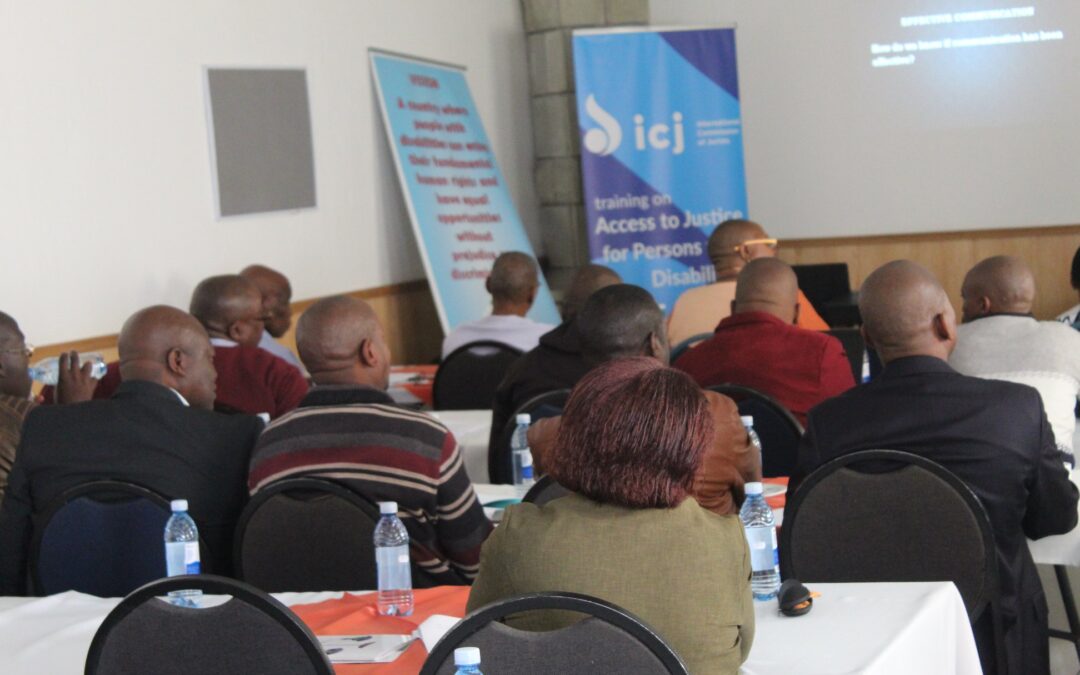
Oct 3, 2019 | News
From 1 to 3 October, the ICJ and the Lesotho National Federation of Organizations of the Disabled (Lnfod), an umbrella body of organizations for persons with disabilities, held a judicial training in Lesotho on the rights and access just to persons with disabilities.
The workshop was attended by judges, magistrates, disability law and policy experts, Lnfod and ICJ legal advisers and ICJ Commissioner Justice Charles Mkandawire.
At the workshop, the ICJ Legal Adviser Associate Nokhukanya Farise discussed on the UN international legal framework on access to justice for persons with disabilities at both the universal and regional levels. In this regard, the ICJ highlighted provisions related to access to justice of the International Convention on the Rights of Persons with Disabilities (CRPD), as well as the Protocol to the African Charter on Human and Peoples’ Rights on the Rights of Persons with Disabilities in Africa.
These instruments provide for a substantive right to access to justice for persons with disabilities under article 13.
In addition, they expand on the rights to non-discrimination and equality of persons with disabilities, as well as their right to equality and access to the physical environment, facilities, services and infrastructure required under article 9 of the CRPD.
Justice Charles Mkandawire of the High Court of Malawi and ICJ Commissioner, who attended the workshop and facilitated a session on the role of the judiciary, said: “The judiciary should be functional independently of the executive and legislature, and the relationship between all three should be characterised by mutual respect. The judiciary should also be impartial and independent to prevent the abuse of power.”
Lnfod has been actively working to secure access to justice for persons with disabilities in the criminal justice system of Lesotho. In the workshop, independent law and policy expert Dianah Msipa discussed the case of Koali Moshoeshoe and Others v DPP and Others, where Lnfod successfully challenged the constitutionality of Section 219 of the Criminal Procedure & Evidence Act No.9 of 1981 in the High Court (Constitutional Division).
That provides that persons with intellectual/psychosocial disabilities are not competent witnesses, denying them equal access to justice.
Lnfod explained the Court’s ruling that the legal barrier violated the right to equality before the law and was discriminatory on the basis of disability. It also disproportionately affected women and girls with intellectual and psychosocial disabilities as this rendered them vulnerable sexual abuse.
Lnfod indicated it hoped that the Koali Moshoeshoe case would act as a reformative judicial precedent which will be disseminated and implemented by the courts of law across the country.
“The shift towards the realization of the right to legal capacity for persons with intellectual/psychosocial presents a remarkable opportunity towards overall enjoyment of all the rights provided for in the United Nations Convention on the Rights of Persons with Disabilities on an equal basis with others,” Lnfod said in a statement delivered before the workshop.
At the workshop, independent disability law and policy expert Dianah Msipa explored the issues of understanding disability, the rights of access to justice for persons with disabilities, barriers to effective participation in the criminal justice system, and the use of accommodations in access to justice.
“The training was well-received by all the delegates and I am encouraged by the word of the delegates who stated that they would start providing accommodations to persons with disabilities,” Dianah Msipa said.
Contact:
Khanyo Farise, e: Nokukhanya.Farise@icj.org
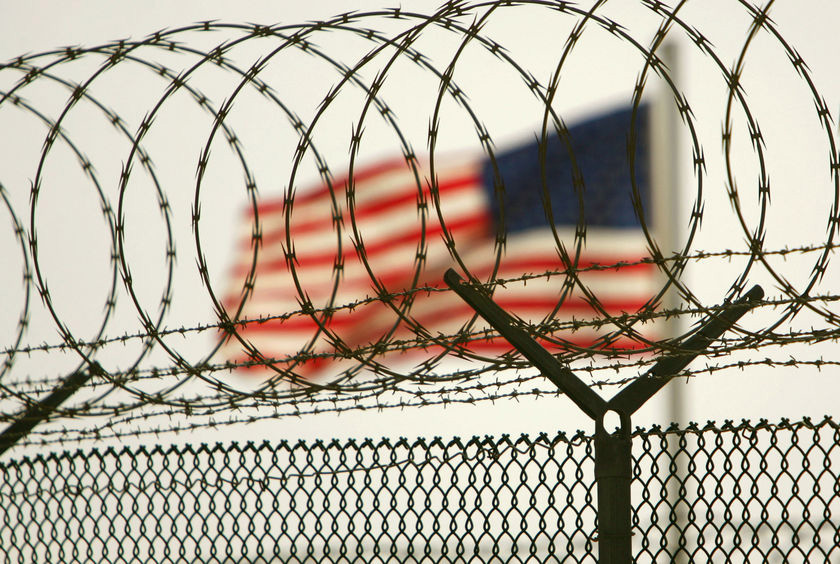
Oct 3, 2019 | Advocacy, Non-legal submissions
Today, the ICJ, jointly with the World Organisation against Torture (OMCT) and REDRESS, made a submission to the UN Universal Periodic Review (UPR) of the United States of America.
The joint submission focusses on the United States’ longstanding failure to:
(1) provide effective remedy and redress, including medical care, and
(2) guarantee fair trials to the “High Value Detainees” who are still held in Guantánamo, including Mr. Mustafa al Hawsawi.
Through a system of classifications, isolation, detention and counter-terrorism related policies the United States’ government is preventing a category of victims of torture and other ill-treatment from obtaining redress, fair trials and is securing impunity for perpetrators, contrary to recommendations in the previous UPR cycles.
For 18 years, the United States government has been violating numerous international human rights treaties it has ratified, first and foremost the Convention against Torture and Other Cruel, Inhuman or Degrading Treatment or Punishment and the International Covenant on Civil and Political Rights. Such violations deserve serious attention in the upcoming UPR review.”
USA-UPR Review-Advocacy-non-legal submissions-2019-ENG (submission in PDF)
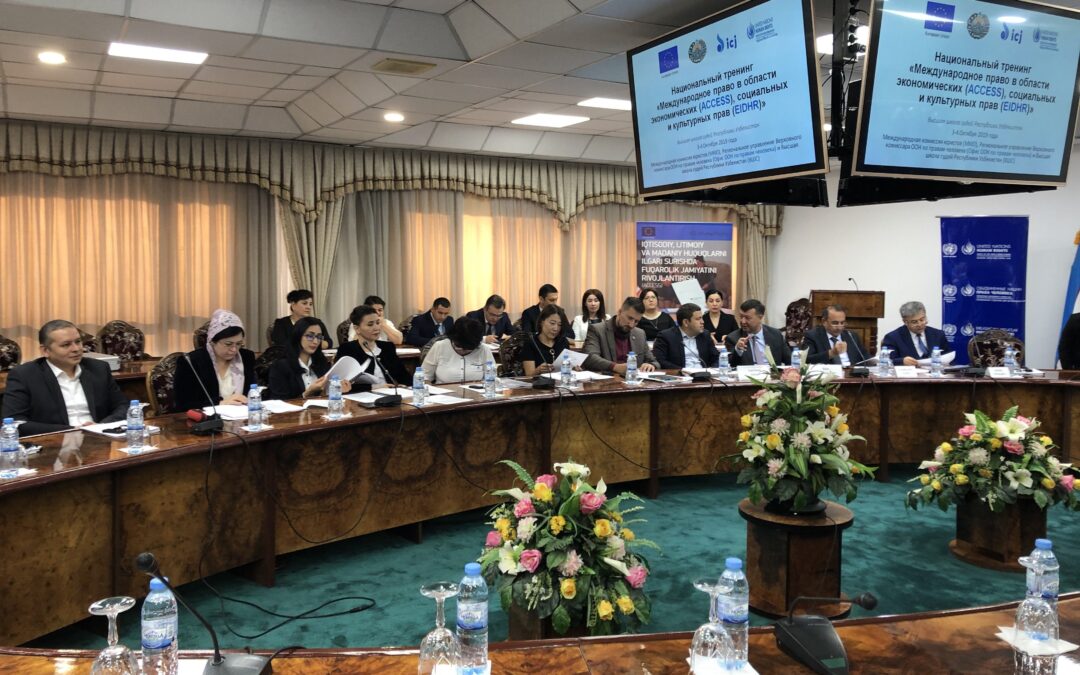
Oct 3, 2019 | Новости, Статьи
Сегодня Международная комиссия юристов (МКЮ), Региональное отделение Верховного комиссара ООН по правам человека (УВКПЧ) для Центральной Азии и Высшая школа судей Республики Узбекистан (ВШС) организуют национальный тренинг на тему «Международные стандарты в области экономических, социальных и культурных прав (ЭСК)».
Этот двухдневный тренинг является одним из ряда подобных тренингов, проводимых в 2019 и 2020 годах, которые будут посвящены международному праву по таким вопросам, как право на здравоохранение, образование, жилье и право на труд.
Целью данного тренинга является укрепление потенциала судей, адвокатов, прокуроров, ученых-юристов и других представителей гражданского общества в области международных стандартов по ЭСК правам с тем, чтобы они могли обмениваться передовым опытом в области соблюдения государствами своих международных обязательств, в том числе посредством судебной практики, связанной с обеспечением доступа к правосудию в защите ЭСК прав. Учебные тренинги создают возможность конструктивного взаимодействия сотрудников судебных органов и других практикующих юристов. Каждый тренинг состоит из четырех модулей: (1) введение в международное право об ЭСК правах; (2) Международные обязательства, касающиеся доступа к правосудию и средствам защиты ЭСК прав в национальных судах; сравнительные примеры положительной практики; (3) ЭСК права детей и (4) ЭСК права женщин.
Глава Представительства ЕС в Узбекистане, Посол Эдуард Стипрайс отметил: «Узбекистан берет на себя важные международные обязательства по приведению своего законодательства в соответствие с международными нормами и практикой. Согласно Конституции Узбекистана, эти международные обязательства имеют приоритет над национальным законодательством. Приверженность этих обязательств будет способствовать укреплению прав граждан Узбекистана и международных инвесторов. Это, в свою очередь, будет стимулировать экономическое и социальное развитие страны, но в то же время возникают высокие требования к судебной системе для обеспечения того, чтобы ее решения полностью соответствовали международным нормам и предоставляли средства правовой защиты от всех нарушений».
Ришард Коменда, региональный представитель УВКПЧ для Центральной Азии, отметил, что «Узбекистан с 1995 года взял на себя обязательство обеспечить выполнение положений Международного пакта об экономических, социальных и культурных правах (МПЭСКП). На сегодняшний день Узбекистан уже представил три национальных периодических доклада об осуществлении положений Пакта. Третий национальный доклад был представлен в июне 2019 года и будет рассмотрен после 2020 года. Комитет ООН, которому поручено контролировать соблюдение государствами своих обязательств по МПЭСКП, выпустил ряд рекомендаций для Узбекистана. Многие из них подчеркивают инструментальную роль тренинга в области экономических, социальных и культурных прав как средства для наращивания потенциала государственных субъектов в отношении уважения, защиты и реализации прав человека. Только благодаря всестороннему пониманию содержания каждого права и пониманию того, что все права человека взаимосвязаны, неделимы и взаимозависимы, можно будет гарантировать целостное выполнение существующих международных обязательств Узбекистана в области прав человека».
«Эти тренинги являются важной частью наращивания потенциала, который необходим для обеспечения эффективности реформы судебной системы», – сказал Роушин Пиллэй, директор программы по Европе и Центральной Азии Международной комиссии юристов. «Чрезвычайно важно наращивать потенциал различных участников системы правосудия: представителей судебных органов, правоохранительных органов, юристов и гражданского общества, чтобы обеспечить большие изменения. Вместе с УВКПЧ и Высшей школой судей и большой поддержкой Представительства ЕС в Узбекистане, мы могли бы предоставить пространство, необходимое для изучения международного права в области прав человека и, в частности, различных аспектов, касающихся экономических, социальных и культурных прав», – добавила она.
Директор Высшей школы судей кратко рассказал о деятельности Высшей школы судей (ВШС), а также отметил недавний визит Специального докладчика ООН по вопросу независимости судей и адвокатов г-на Диего Гарсиа Саяна, который наряду с другими судебными реформами в Узбекистане особое внимание обратил на создание ВСШ. «Международный семинар, на котором мы собрались сегодня, дает нам возможность укрепить связи с другими организациями и органами посредством продвижения экономических, социальных и культурных прав. Обмен идеями и опытом вызван нуждами современного мира для конструктивного развития судебной системы, образования и общества в целом», – сказал Ходжи-Мурод Исаков, директор Высшей школы судей.
Национальные тренинги организованы в рамках проекта «Усиление роли гражданского общества в продвижении стандартов в области экономических, социальных и культурных прав (ACCESS)», финансируемого ЕС через Европейский инструмент демократии и прав человека (EIDHR). В 2020 году будет проведено еще два аналогичных тренинга, и в конце все учебные материалы будут переведены на русский и узбекский языки для дальнейшего использования. Кроме того, учебные материалы будут доступны для общественности в 2020 году для более широкого охвата и продвижения международного права и стандартов ЭСК прав.
За более подробной информацией просим обращаться:
Дилфуза Куролова, Консультант по правовым вопросам (МКЮ), Тел.: +998 90 9050099 ; e: dilfuza.kurolova(a)icj.org
Uzbekistan-National Training ESCR-News-2019-RUS
Международные стандарты в доступе к правосудию в области экономических, социальных и культурных прав. Национальный тренинг
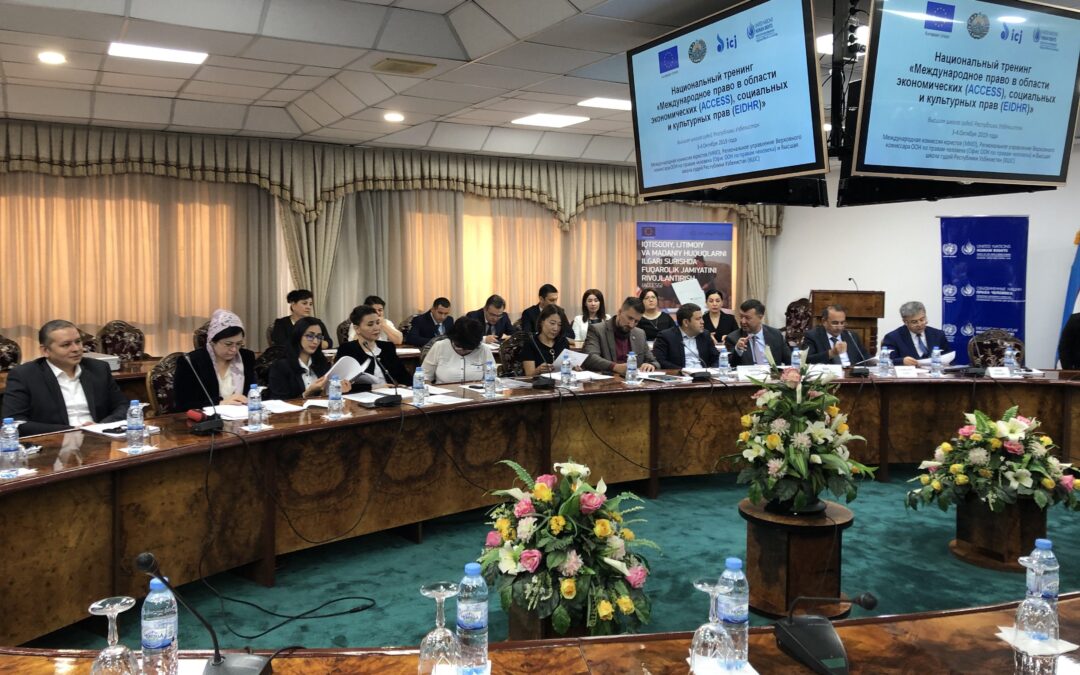
Oct 3, 2019 | News
Today, the ICJ, the Regional office of the UN High Commissioner for Human Rights (OHCHR) for Central Asia and the High School of Judges of the Republic of Uzbekistan (HSJ) are organizing a national training on “International law on economic, social and cultural (ESC) rights.”
This two-day training is one of series of similar trainings, held in 2019 and 2020, that will address international law on issues including rights to healthcare, education, housing and rights in the workplace.
The training sessions aim to build the capacity of judges, lawyers, prosecutors, legal academics and other representatives of the civil society on international standards on ESC rights, to share best practices on compliance by States with their international obligations, including through judicial practices related to ensuring access to justice for ESC rights.
The training sessions ensure diversity and networking opportunities between members of the judiciary and others legal practitioners.
Each training consists of four modules on (1) introduction to international law on ESC rights; (2) International obligations concerning access to justice and remedies for ESC rights in national courts; comparative examples of good practice; (3) Children’s ESC rights and (4) Women’s ESC rights.
Head of the EU Delegation in Uzbekistan Ambassador Eduards Stiprais pointed out, “Uzbekistan is taking serious international commitments to align its legislation with international norms and practices. Under Uzbekistan Constitution, these international commitments take precedence over the national law. They will reinforce the rights of Uzbekistan citizens and international investors. This will boost the economic and social development of the nation, but it will also put high demands to the judiciary system to ensure that its decisions fully comply with international norms and offer remedies against all breaches.”
Ryszard Komenda, OHCHR Regional Representative for Central Asia, noted that “Uzbekistan since 1995 has committed itself to ensure implementation of provisions of the International Covenant on Economic, Social and Cultural Rights (ICESCR).
To date, Uzbekistan has already submitted three national periodic reports on implementation of the Covenant. The third national report was submitted in June 2019 and will be reviewed after 2020.
The UN Committee, tasked to oversee states’ compliance with their commitments under the ICESCR, has issued a number of recommendations for Uzbekistan.
Many of them highlight the instrumental role of training on economic, social and cultural rights as a means to build capacity of state actors to respect, protect and fulfil human rights.
Only through comprehensive understanding of the content of each right and realizing that all human rights are interrelated, indivisible and interdependent, it will be possible to guarantee holistic implementation of existing international human rights obligations of Uzbekistan”.
“These trainings are an important part of capacity building which is essential in ensuring the effectiveness of the reform of the judiciary,” said Róisín Pillay, Europe and Central Asia Programme Director of the ICJ.
“It is vital to build capacity of different actors of the justice system: members of the judiciary, law enforcement agencies, lawyers and civil society, to ensure a greater impact. Together with the OHCHR and the Supreme School of Judges and the great support of the EU Delegation in Uzbekistan, we could provide the space necessary for learning about international human rights law and, in particular, its various aspects related to economic, social and cultural rights,” she added.
The Director of the Higher School of Judges briefly spoke about the activities of the Supreme School of Judges (SSJ), and also noted the recent arrival of the UN Special Rapporteur on the independence of judges and lawyers, Mr. Diego Garcia Sayan, who paid special attention to the establishment of the SSJ, along with other judiciary reforms in Uzbekistan.
“The international seminar in which we have gathered today gives us the opportunity to establish networking with other organizations and bodies through promotion of economic, social and cultural rights. The exchange of ideas and experience in the necessity of the modern world, for the mutual development of the judiciary, education and the society as such,” said Khodji-Murod Isakov, the Director of the Higher School of Judges.
The national trainings are organized in the framework of project “Advancing Civil Society in Promoting ESCR Standards (ACCESS)” funded by EU through the European Instrument for Democracy and Human Rights (EIDHR).
There will be two more similar trainings in 2020 and all trainings materials at the end will be translated into Russian and Uzbek languages for further reference and use. Moreover, the trainings materials will be publicly available in 2020 for wider outreach and promotion of international law and ESC rights standards.
Contact
Dilfuza Kurolova, ICJ Legal consultant, t: +998 90 9050099 ; e: dilfuza.kurolova(a)icj.org
Download
Uzbekistan-National Training ESCR-News-2019-ENG (full story in PDF)
International law on economic, social and cultural (ESC) rights (4 training modules in Russian – PDF).









